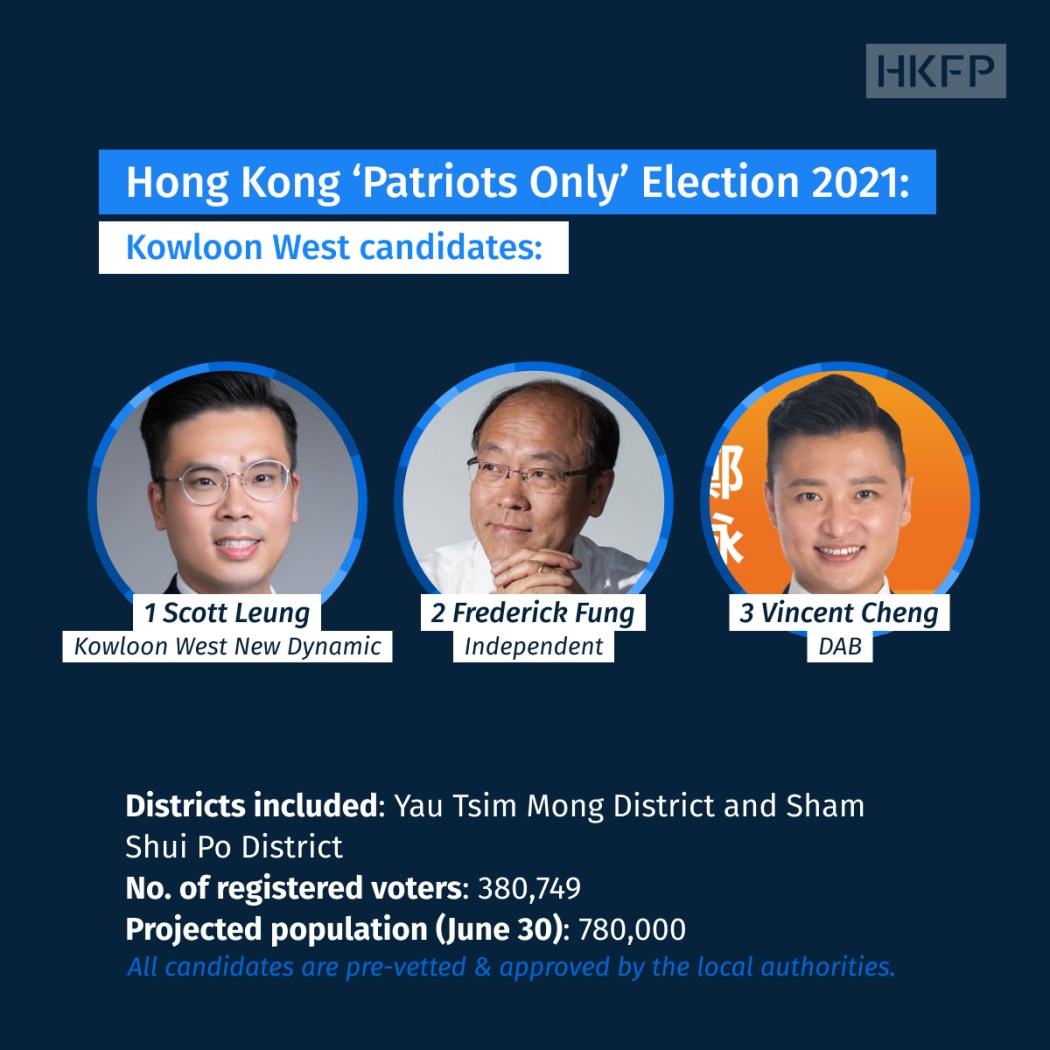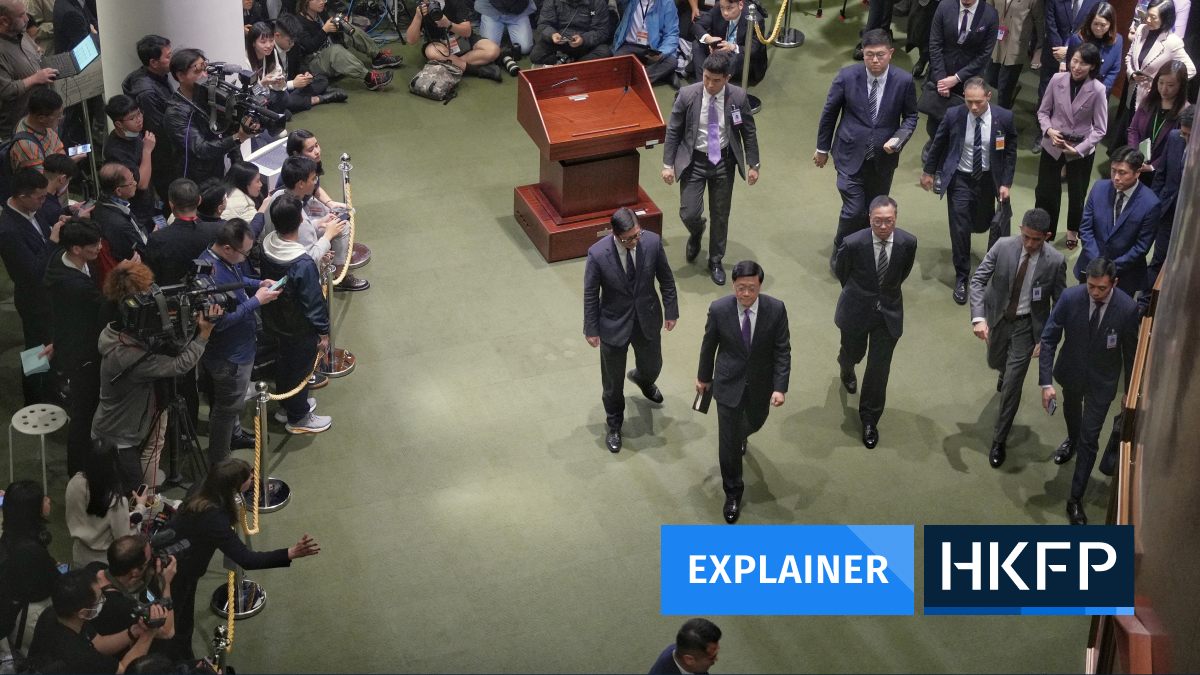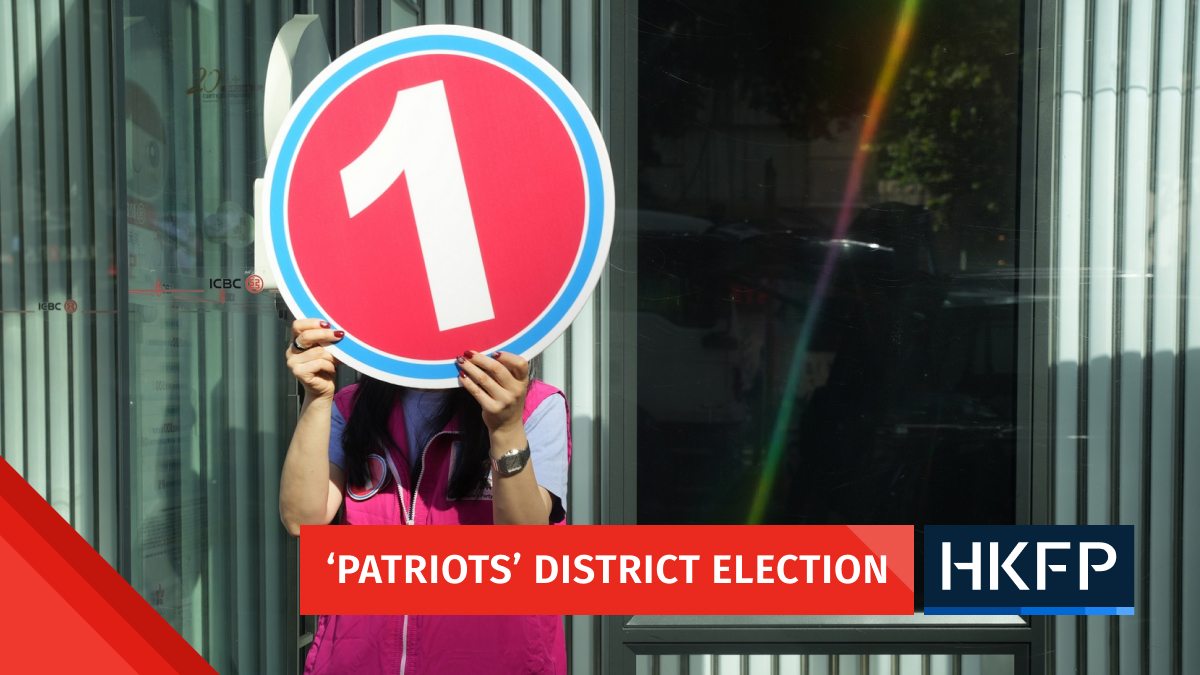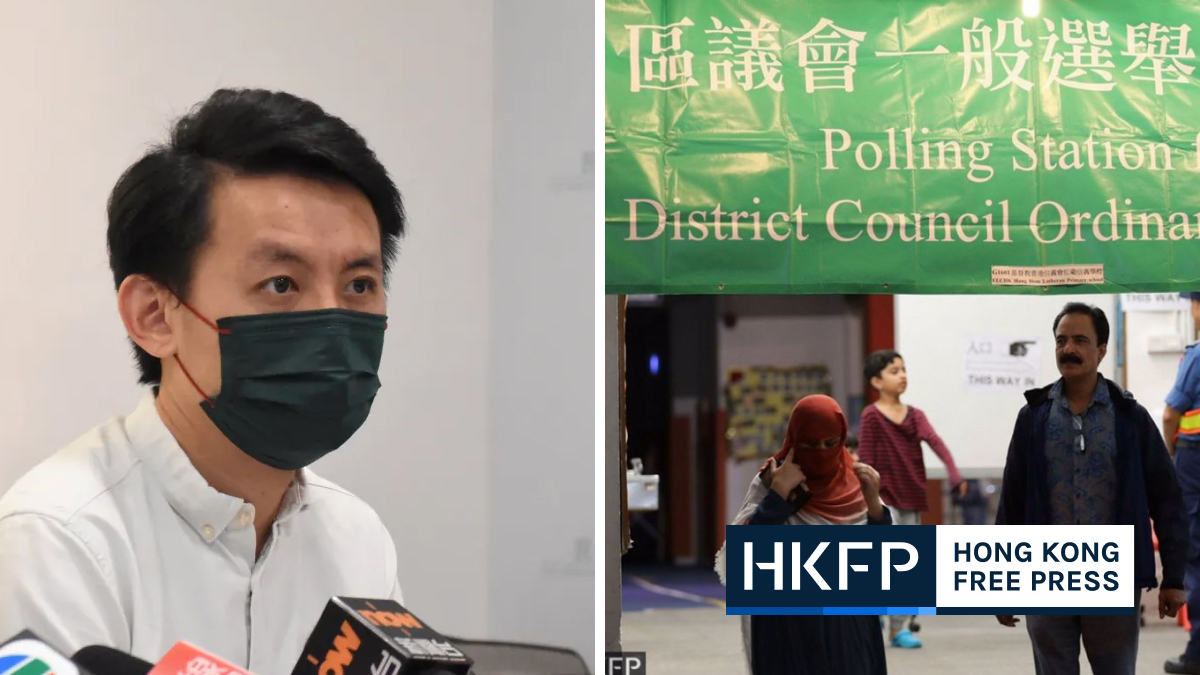At least 41 ‘privileged voters’ will be able to influence 1.47% of Legislative Council seats in Sunday’s ‘improved’ election, a Factwire analysis has found. The voting power of each of these 41 four-vote holders is roughly equal to that of 7,215 ordinary voters, who hold one vote each in a Geographical Constituency.
The LegCo General Election, scheduled for Sunday, will be the first one under the ‘improved electoral system’, relevant amendments having been passed in May of this year.
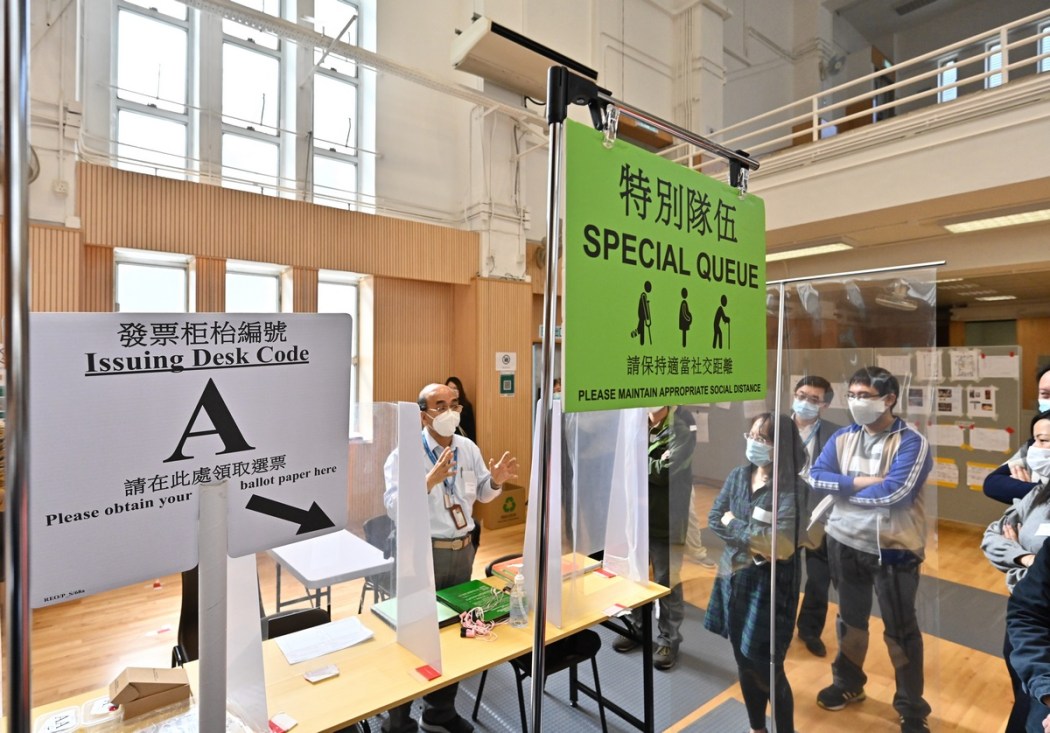
With the addition of the new Election Committee constituency, at least 41 electors will wield four votes while most others have only one. Those with the most relative voting power (that is, voting power after adjusting for district or sector size and seats in said district or sector) are Bank of China (Hong Kong) IT manager Rocky Cheng, legislator Elizabeth Quat and university professor William Wong.
Under the Improving Electoral System (Consolidated Amendments) Bill of 2021, the total number of seats in LegCo has been increased from 70 to 90. The numbers of seats in Geographical Constituencies (GC) and Functional Constituencies (FC) have been reduced from 35 to 20 and 30 respectively, while the newly-formed Election Committee Constituency will comprise 40 new seats.
The FC’s composition will also see changes. The District Council sector has been abolished, and three new sectors introduced: namely, ‘Commercial (third)’, ‘Technology and innovation’, and ‘HKSAR deputies to the NPC, HKSAR members of the National Committee of the CPPCC, and representatives of relevant national organisations’. In some sectors, individual electors have been replaced by corporate electors.

The electorate of the Election Committee Constituency comprises 1,500 Chief Executive Election Committee (EC) members, each assigned a ‘block vote’ to select 40 candidates. But there are only 1,448 EC members in the current term, owing to vacancies in its LegCo members subsector and the fact that some members are eligible through two routes.
Under the new electoral system, EC members will be significantly influential, because some of them are qualified to vote in the EC Constituency, their own GC districts and two FC sectors (as individual and corporate electors respectively) at the same time, adding up to as many as four votes per person.
By cross-referencing the names, addresses and corporate particulars of the three constituencies’ voters as listed in the final register of electors, FactWire identified 41 people wielding four votes each and more than 650 people holding three.
Among those who have four votes are 24 in the ‘HKSAR deputies to the NPC, HKSAR members of the National Committee of CPPCC, and representatives of the relevant national organisations’ sector. Three of them, Ma Fung-kwok, Elizabeth Quat, and Michael Tien, are also legislators. Other four-vote holders include legislators Junius Ho and Jimmy Ng, as well as an assortment of prominent businesspeople and professionals.

The absolute value of each vote varies, since each constituency has a differently-sized electorate and contains a different number of seats. FactWire calculated the influence of four-vote holders by first dividing the number of seats in the relevant district, sector, or constituency by the number of votes in it.
Then, this number is divided by the total number of seats in LegCo (90). These values are then tallied to produce a figure for ‘voting power’ or ‘influence’, on the formation of the whole LegCo. The voting power across all votes in Hong Kong adds up to 100 per cent.
FactWire’s calculations show that 1.47% of the 90 LegCo seats will be determined by 41 four-vote holders, each holding an average vote value of 0.0358%. In contrast, the influence of an ordinary citizen who is eligible only to vote in a GC is 0.00000497%. This is a 7,215-fold difference.
The most influential voter is Rocky Cheng, the General Manager of Information Technology of the Bank of China (Hong Kong), followed by legislator Elizabeth Quat, and William Wong, the Associate Dean of the Faculty of Engineering at the Chinese University of Hong Kong. They have a similar voting power of around 0.0476%.

All three of them belong to the same FC sectors, each holds an individual vote in the ‘HKSAR deputies to the NPC etc.’ sector and a corporate vote in the ‘Technology and innovation’ sector. These two sectors, along with the EC constituency, are all new in the coming election.
As for GC, Rocky Cheng belongs to the ‘New Territories South East’ district while the other two belong to the ‘New Territories North East’ district. Their voting power values differ by 0.0000001%.
Voters in the ‘Technology and innovation’ sector are the most influential in FC because each seat is determined by only 73 corporate voters. The top five influential voters in FactWire’s analysis all hold a corporate vote in this sector.
Other four-vote holders include the Executive Council’s convenor Bernard Charnwut Chan, legislator Junius Ho, Fok Ying Tung Group’s vice president Kenneth Fok, MTR’s chief executive officer Jacob Kam, Kingston Financial Group’s executive Pollyanna Chu, Sing Tao News’s former chairman Charles Ho, Goldin Real Estate Financial Holdings’ chairman Pan Sutong, Far East Consortium’s chairman David Chiu, legislator Michael Tien, ATAL Engineering’s chairman Otto Poon (the husband of Secretary for Justice Teresa Cheng) and Urban Renewal Authority’s deputy chairman Wai Chi-sing. (See details in table)

In addition to wielding four votes each, the 41 EC members also have an influence on candidacy. All candidates running for the election must obtain two to four nominations from each of the five EC sectors – that is, at least ten from the EC as a whole.
The EC is also the only group who have the right to nominate and elect Hong Kong’s Chief Executive, in the Chief Executive election, scheduled to be held in March next year.
All 4,472,863 registered voters in Hong Kong have a GC vote. Under the new system, GC seats have been reduced from 35 to 20, and districts have been rezoned and increased from five to ten. Although the ‘New Territories South West’ district has the greatest number of registered voters at 510,558, only two seats will be returned there, as in all other districts, resulting in a relatively lower influence per vote.
This means, then, that the influence of Rocky Cheng’s four votes, including a GC vote in ‘New Territories South East’, is 10,926 times greater than that of a single-vote elector in ‘New Territories South West’.
Not only does the new electoral apportionment see the voting influence of certain people increased, it also greatly dilutes the influence of GC voters. Dividing the number of GC seats by the total seats in LegCo and by the number of voters, each GC vote had 0.0000132% influence on LegCo’s formation in 2016. This percentage will fall by 62% to 0.00000497% in the upcoming election.

The Improving Electoral System (Consolidated Amendments) Bill 2021 was passed in May this year to revise the composition and method of formation of the next session of LegCo, as well as the electoral systems for the Chief Executive and the EC. The number of EC members was increased from 1,200 to 1,500.
Editor’s note: Values listed in the article are rounded for ease of reading, and may thus not be exactly equal to the values used in FactWire’s calculations.
Election committee and functional constituency candidates are listed here. Geographical constituency candidates are shown below – click arrows to advance.
LATEST on the ‘patriots only’ poll
Timeline: Hong Kong’s new security law – from public consultation to passage in 48 days, after ‘27 years’ in the making
Ex-student leader seeks to challenge Hong Kong election law over inciting blank votes in 2021 ‘patriots-only’ legislative race
Over 90% of Hong Kong’s newly elected district councillors sit on the three committees that decide who runs
Hong Kong Democratic Party endorses 8 candidates for first ‘patriots-only’ district council election

Support press freedom & help us surpass 1,000 monthly Patrons: 100% independent, governed by an ethics code & not-for-profit, Hong Kong Free Press is #PressingOn with impartial, award-winning, frontline coverage.






